Navigating the Google Data Apocalypse in 2024: Best Practice in Tracking
Google is making some BIG changes to web analytics and tracking in 2024:
- From the full scale GA4 roll out to enterprise GA360 brands
- To the enforcement of Cookie Consent Mode v2 from early March.
- And the progressive removal of 3rd party cookies in Chrome throughout 2024.
We held a webinar in February 2024 to outline what marketing teams need to do to stay on top of these changes with Julian Erbsloeh Head of Data and Analytics at Fresh Egg Digital Marketing Agency and Gabriel Hughes PhD, our CEO and Founder to showcase best practice in this new emerging world.
Julian, Head of Data and Analytics at Fresh Egg oversees a team focusing on web analytics best practice including web data collection and quality. His team also offers training on GA4 and all aspects of Google tracking for marketing teams.
GA4 best practice tips
Julian outlined the transition to Google Analytics 4 (GA4) and its benefits, including event-based data model, compliance with GDPR, and advanced functionality but also highlighted challenges with GA4, such as new terminology, unfamiliar reporting interfaces, and data discrepancies.
Julian emphasized the importance of the teams having trust in the data. He outlines that GA4 is actually a better methodology for collecting data from websites than the previous Universal Analytics set up but because it was rushed out by Google to meet European privacy deadlines, it was a bit buggy at launch which has reduced trust in the data. Julian suggests that this trust needs to be rebuilt in 2024 and teams need to utilize GA4’s new functionality to their business advantage. GA4 training for cross functional teams is useful here to rebuild that trust.
FreshEgg advised backing up historic Universal Analytics data before it disappears by June 2024 and customizing GA4 interface for better relevance.
He stresses the ongoing need to invest in data quality and periodically verify data accuracy.
Updates in Consent Management:
Julian discusses the rollout of Consent Mode Version 2, enforced by Google to ensure proper consent for tracking.
To do this, website owners need to update consent management platforms and Google Tag Manager to comply with new regulations by March 6th.
If this deadline is missed, this may impact remarketing and conversion tracking.
Future of Cookies
Mentions Google Chrome’s plan to stop supporting third-party cookies in 2024 but highlights that web analytics primarily use first-party cookies.
He notes the potential of AI and machine learning in modeling user behavior for non-consented users.
Overall conclusion for tracking changes:
Julian acknowledged that changes in technology and regulations are part of the job, emphasizing the need for adaptation and encouraged marketers to look ahead and find solutions to navigate through changes effectively.
Do you need help to make sense of your marketing measurement and regain control over your ROI?
If so just contact us: [email protected]













